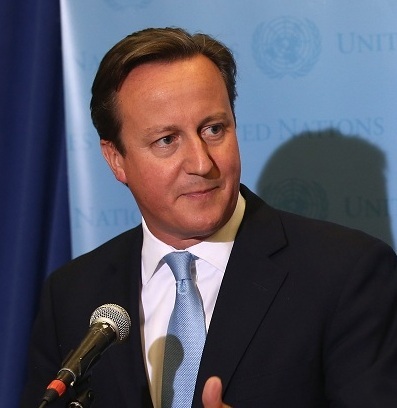
(AFP PHOTO MAHMOUD KHALED)
United States Secretary of State John Kerry has urged that Egypt’s interim government practice transparency and restraint as its “turbulent experiment in participatory democracy” goes forward.
Following Saturday’s official referendum results, in which the constitution passed with 98.1% of the vote, Kerry issued an official statement highlighting “serious concern about the limits on freedom of peaceful assembly and expression in Egypt.”
Kerry stressed the need to allow international observers to monitor elections to build “confidence” in Egypt’s move toward democracy, citing reports by the Carter Centre and Democracy International, which expressed “serious concerns” about the political climate, which virtually guaranteed a Yes vote.
“As Egypt’s transition proceeds, the United States urges the interim Egyptian government to fully implement those rights and freedoms that are guaranteed in the new constitution for the benefit of the Egyptian people, and to take steps towards reconciliation,” said Kerry.
“Democracy is more than any one referendum or election. It is about equal rights and protections under the law for all Egyptians, regardless of their gender, faith, ethnicity, or political affiliation.”
In a Sunday statement, Arab League Secretary-General Nabil Al-Araby praised Egypt’s referendum as a “fundamental pillar” toward the realisation of the roadmap set out after Mohamed Morsi’s ouster.
“The Arab League delegation, which participated in monitoring the referendum, has praised the efforts made by the Egyptian Supreme Election Committee, along with the military and police forces, that ensured the referendum was held in an atmosphere of tranquillity, freedom and transparency,” read the statement. “Although there were some unfortunate clashes, they did not affect overall democratic referendum process.”
Eight observers from corruption watchdog Transparency International (TI) monitored the referendum and the political climate in Egypt over a 10-day period and issued a preliminary report on Thursday. Citing a crackdown on media, protestors, and the freedom to assemble, TI found that the “political context in the run-up to the referendum impaired conditions to hold free and fair referendum when compared with international standards.” The report outlined 13 recommendations for future elections, with several urging campaign reform.
A total of 98.1% of voters, amounting to 19,985,389 citizens, approved the draft constitution, while only 1.9%, or 381,341 Egyptians, voted against it, according to the Supreme Electoral Commission (SEC). The announced turnout of 38.6%, or 20,613,677 voters, represented a slightly higher mark than the 32.9% of eligible voters who took part in the referendum on the 2012 constitution.




